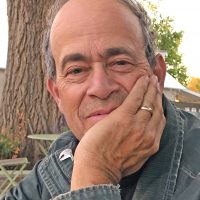View this post on Instagram
I knew from the hot, embarrassed sensation coursing through my body that I had blown it.
In fact, I had blown it badly.
The person on the other end of the line had been terse and obviously wanted no further part of our conversation. He was also my friend, one of my best friends—but no more.
A year before, his wife of 30 years had began to show symptoms of ALS, or Lou Gehrig’s disease. It is a particularly vicious affliction in which your nerve cells break down and your body slowly freezes up until it no longer functions. Speech and movement is totally lost, although the mind is still alert.
It’s literally dying in slow-motion. I personally can think of no more awful a way to go.
Early on, I had paid them one visit, which was uncomfortable, and then disappeared completely. No further calls, no check-ins, and no offers to help in any way. I was always on the verge of doing so but could never quite follow through.
I rationalized my lack of support by my undergoing an unexpected break-up at the time but deep down, I knew I was lying to myself. And so the months went by until I saw her obituary in the local newspaper.
It was on that day that I called him and received an understandably cold reception. I went to her celebration of life service where all those who had stood by the family were honored. I hung on the sidelines feeling nothing but shame. My friend and I exchanged not a word.
In the course of our lives, we all do shameful things. These can be deliberate or the most unintentional. Good, decent people commit such acts—but it’s our response that matters.
There is always a temptation to deflect or defend such behavior but deep down, we will never find peace with our conscience. Worse, the cause of our actions will repeat further down the line only to hurt someone else.
In my case, I took a long, hard look at myself to delve into why I had deserted my close friend in his most trying hours of need. My conclusion was that I was terrified to be around people who were dying or who had suffered the death of a loved one. I recognized both as character flaws and ones I wanted to rectify.
With that commitment in hand, I signed up to be a hospice volunteer. My first training was the night of September 10, 2001.
I continued for five years, with my longest client being a young man suffering from terminal cancer. I stood witness as he married his caregiver at the town hall a few weeks before he died. Soon after, both my aged parents were moved to an assisted living facility where my father died a month after his entry. My mother began the long, slow slide into dementia but I was with her every step of the way. I sat by her bedside the night she passed on.
I had learned my lesson and perhaps passed a vital test—but I had lost my best friend, perhaps forever. Had I been there for him, he would have danced at my wedding and perhaps even officiated it. Never once in the past 23 years, however, have I asked for or even begged him for forgiveness. That is for him, not for me to decide and I accept whatever his decision will be.
That is the price for my past actions and I’m fine paying it if it gains me accountability and wisdom.
~
Please consider Boosting our authors’ articles in their first week to help them win Elephant’s Ecosystem so they can get paid and write more.
~











Read 5 comments and reply